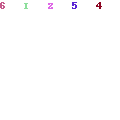In the wake of the BriansClub cm hack, where more than 26 million credit card records were stolen and sold on the dark web, many are left wondering if anyone is truly safe online anymore. The dark web has long been associated with illicit activities, but now even regular internet users are at risk of having their personal information stolen and sold to the highest bidder. Join us as we delve into the murky world of the dark web and explore just how vulnerable we all really are in this digital age.
What is the Dark Web?
The Dark Web, also known as the Deep Web, is a section of the internet that is not indexed by most search engines. It can only be accessed using specific tools and requires a password to access. The Dark Web contains websites that are not indexed by Google, Bing, or any other search engine. These websites cannot be found using traditional methods like searching for keywords or browsing through links.
Most people who use the Dark Web do so for illegal activities like buying and selling drugs or hacking into accounts. However, there are also legitimate uses for the Dark Web such as accessing hidden files and forums. Even though it is illegal to access many parts of the Dark Web, it is still a growing section of the internet and there are plenty of things to explore.
The Post-Briansclub CM Hack
The Briansclub cm hack has had a devastating impact on the safety of users who rely on the site to meet new friends and make connections. The hack exposed the personal information of millions of users, making them susceptible to identity theft, fraud, and other malicious activities.
Even though the site has since been updated to protect against this type of cyberattack in the future, many people are left wondering if they’re still safe to use. Here are five things you need to know about the post-Briansclub cm hack world:
1. Cybersecurity firms have warned that there will be more hacks like this in the future.
2. Many people are concerned that their personal information was compromised in the Briansclub hack.
3. There is no way to guarantee that your personal information will never be stolen or hacked again.
4. You can take steps to protect yourself from identity theft and other malicious activities by using safe online practices and keeping up-to-date with cyber security updates.
5. If you’re worried about being impacted by the Briansclub, speak with a trusted friend or family member about your concerns so they can offer support and advice.”
What You Need to Know About the Dark Web
The Dark Web is a part of the internet that is not typically accessible with normal web browsers. It requires specialized software, such as Tor, to access. Tor is an anonymity network that helps protect users’ privacy by routing their traffic through a series of anonymous servers.
The Dark Web has long been associated with illicit activities, such as drug trafficking and cybercrime. But it also contains valuable information and resources, including pirated files and hacked data from corporate websites.
Recent events have highlighted the dangers associated with using the Dark Web. On February 14th, 2018, the online security company Brian’s Club CM was breached, resulting in the release of millions of user records. Within days, copies of the data had appeared on various dark web markets for sale.
This attack demonstrates just how easily personal information can be stolen and sold on the Dark Web. Anyone who has registered with Brian’s Club CM is at risk of being identified and attacked by hackers. If you are concerned about your privacy and security online, it is important to stay informed about how to stay safe on the Dark Web.
How to Protect Yourself from the Dark Web Post-Briansclub CM Hack
The post-Briansclub cm hack has left the online world a more dangerous place. The experts warn that anyone using the internet is at risk, as cybercriminals are now looking to exploit any vulnerability in order to gain access to personal information and financial resources.
Here are some tips on how to protect yourself from the Dark Web:
1. Use a strong password: A strong password is the key to protecting your identity and personal information online. Make sure to create a unique password for every website you visit and never use easily guessed words or easily accessible passwords like your birthday or your address.
2. Be vigilant when downloading software: always be cautious when downloading software from unknown sources. Check the reviews before installing anything, and make sure you know what you’re agreeing to by installing anything from an unexpected source.
3. Stay away from sketchy websites: don’t browse the web in dark corners or isolated places where you can’t be seen or reached by anyone else. Always use a secure browser (like Firefox) and avoid clicking on suspicious links or attachments that seem too good to be true.
4. Keep up with regular security updates: make sure your computer is up-to-date with all the latest security patches and antivirus software programs available in order to safeguard yourself against potential cyberattacks.
Conclusion
If you’re like most people, at some point in your life you’ve probably accessed the internet using a public Wi-Fi network. However, the days of relying solely on public Wi-Fi are numbered thanks to recent cyberattacks that have affected many major companies and institutions. In this article, we’ll explore one such attack – the Briansclub cm hack – and discuss what you can do to protect yourself from future attacks.














Greetings of the Day.
Hello, Kaleem Ullah.
Great Content. I Strongly recommended it.